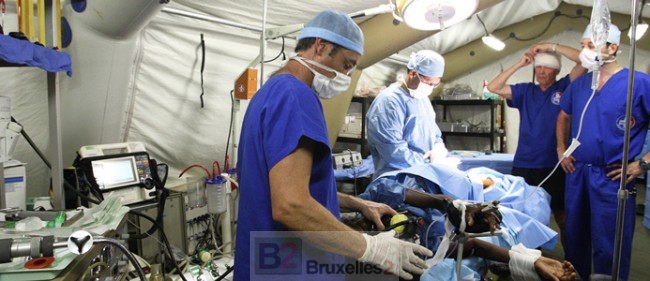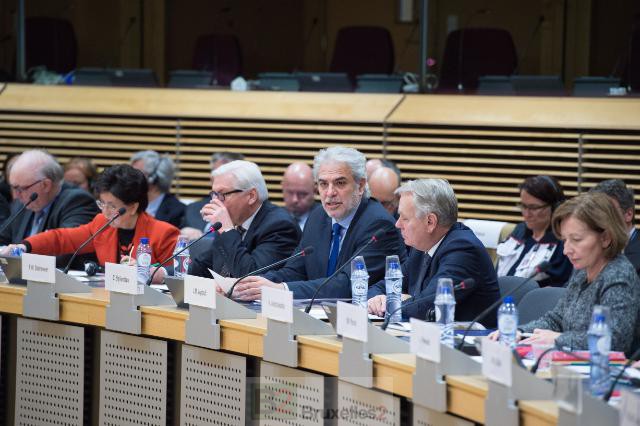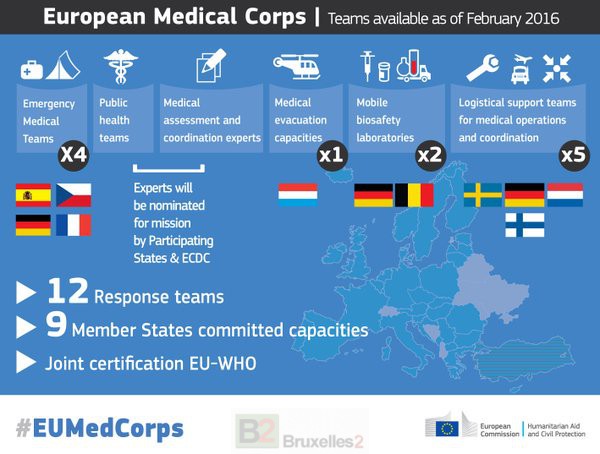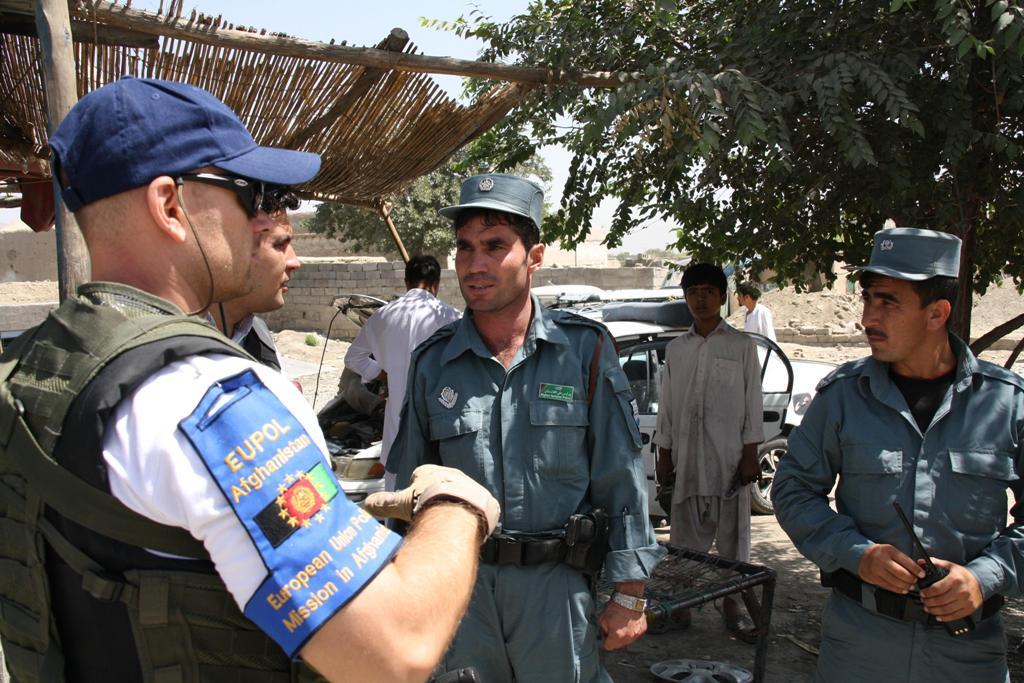Epidemics, disasters… The European medical profession will now be able to respond

(B2) A 'European medical corps' capable of intervening rapidly in the event of an epidemic risk, in Europe or worldwide. The idea is not new. It had been lingering for years in the minds of 'emergency physicians' as well as certain European officials. This initiative has just been implemented on Monday (February 15) by the European Commission.The Ebola crisis catalyst
The Ebola crisis in Africa was a catalyst for this project. A large number of medical personnel and equipment had to be deployed quickly. A challenge “in terms of logistics and management” as judged by the Commission. At the end of 2014, France and Germany proposed a so-called 'White Helmets' initiative. It is taken up and detailed today in the form of an action of the European Civil Protection Mechanism. The objective remains the same: Be able to rapidly deploy teams and equipment to provide medical assistance and public health expertise, in emergency situations, inside and outside the European Union ».
Who will supply the teams?
It is the Member States of the Union which provide one or more teams of emergency specialists. A team includes doctors, nurses, caregivers, first aiders, experts in medical surveillance and coordination, logistical support teams as well as, where necessary, mobile biosafety laboratories and medical evacuation capabilities. In practice, the teams remain in their Member State, going about their tasks. They are simply mobilized in case of emergency. This is called an operational reserve.
How are these teams selected?
To be able to join the European Medical Corps, teams must undergo a certification procedure. Objective: to guarantee that they meet strict quality criteria and are trained according to the same standards in order to be able to work together or integrate into the framework of an international relief operation. Once certified, the relevant medical team is integrated into the European Medical Corps and becomes available for deployment in EU emergency response operations.
Which countries participate in the European Medical Corps?
As of February 15, nine countries have already indicated that they will participate: the Benelux countries (Belgium, Luxembourg, the Netherlands), Germany and France, the Nordics (Finland and Sweden), the Czech Republic and the 'Spain. The device remains open to other participants. " Any other country participating in the EU Civil Protection Mechanism (*) can make teams and medical means available to the European Medical Corps ” we say to the European Commission.
In all, twelve teams are currently available (according to the latest published inventory, see below): four emergency medical teams (France, Germany, Spain, Czech Rep.), five logistics teams (Germany, Sweden , Finland, Netherlands), two mobile laboratories (Germany, Belgium) and a medical evacuation team (Luxembourg).
How is this coordinated?
Once certified, the relevant medical team is integrated into the European Medical Corps and becomes available for deployment in EU emergency response operations. This deployment is normally coordinated by the Emergency Response Coordination Center (CERU) based at the European Commission (Read: The dance hall becomes … a 24/24 PC for European civil protection). But the decision to deploy the teams is always a decision of the Member State concerned, which can thus decide to send, or not to send its team to an emergency area.
How is it going on the field?
The coordination of the teams goes through the general coordination platform set up for the emergency in question, either under the leadership of an affected country or within the framework of the United Nations coordination system (OCHA or other organization).
Who funds?
The European budget contributes both to the selection and preparation of the teams (training, exercises, adaptation of on-call equipment, etc.) and to the financing of travel in the event of an emergency in the area of operations (85% of the costs eligible are supported).
What is the benefit then?
Have teams already formed, ready to go, fairly homogeneous, with well-identified equipment and teams. This makes it possible to avoid what we observe, in each disaster, the arrival on the ground of teams that are certainly competent and motivated, but which are not at all designed according to the same organizational mode and, sometimes, take more disorganization in relief than efficiency... (cf. in Haiti in particular).
The integration of these teams and these experts in a single European Medical Corps will increase significantly the availability of doctors and medical equipment when emergencies arise says those around Commissioner Stylianides, in charge of Humanitarian Aid at the European Commission. It will allow " also to better plan and prepare the reaction to such situations ". Another advantage (not insignificant for the States): the assumption of certain costs by the European Union.
(Nicolas Gros-Verheyde)
Read about Operation 'Ebola':
- A Belgian lab against Ebola in Guinea
- The Karel Doorman docked in Sierra Leone
- Le Tonnerre en route to Guinea, with equipment for the French “anti-Ebola” center
- 2 Luxembourg planes ready for evacuation for Ebola
- A civil security unit undergoing “Ebola” training in Guinea
- The Karel Doorman sent against Ebola
- The RFA Argus leaves for Sierra Leone. Objective: Ebola
(*) Several non-EU countries participate, including Iceland and Norway, Serbia, Montenegro, and the former Yugoslav Republic of Macedonia (Fyrom). Turkey should participate soon.


